News
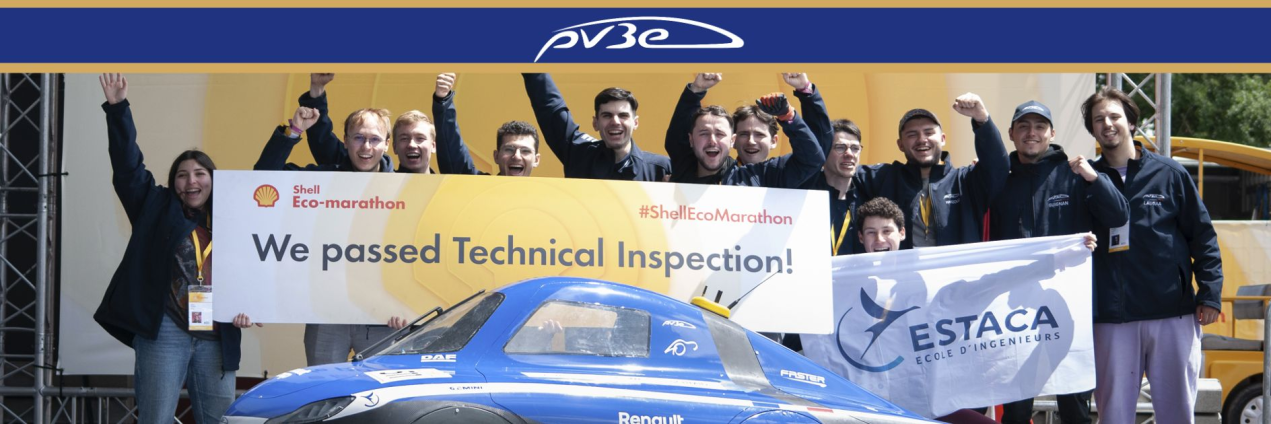
PV3e turns 40!
Press release November 12, 2024
Cover the most kilometers with 1 liter of fuel or 1kWh: the PV3e association celebrates the 40ᵉ anniversary of the first energy competition in France dedicated to students.
The PV3e "ESTACA Student Energy Vehicle Project" association is celebrating its 40th anniversary, and the launch in France of the very first 100% student energy race, now known as the Shell Eco Marathon.
Objective: to design a vehicle that covers the greatest possible distance with the minimum energy input, i.e. the equivalent of 1 liter of fuel or 1kWh for the electric category. Since its creation, the association has designed 11 vehicles and 4 generations of engines, with a current record of 2701 km/L, equivalent to a round trip from Paris to Madrid.
To mark this anniversary, the association will be exhibiting 7 of the 11 vehicles it has created since 1996 on November 22 at the Ecole Centrale Paris, bringing together students and alumni.
ESTACA launched this new student challenge in France in the early 80s. After the first 2 editions in 1984 and 1985 in Vincennes, Shell took over the organization and renamed the race Shell Eco Marathon. Each year, the PV3e association designs, builds and develops energy-efficient vehicles to compete in this challenge, with a prototype in the internal combustion engine category. At PV3e, students can learn to use 3D design software, structural calculations, fluid mechanics and race strategy.
For Guillaume Houssin, 3rd year student and PV3E secretary:
"Every year, our association designs and builds an energetic vehicle that addresses crucial issues in the field of decarbonization, and takes part in one or more international competitions. The school provides us with technical premises and software resources to work on our projects. We are a group of around thirty students with complementary skills, who work together throughout the year to achieve our goals in a genuine team effort. Taking part in the PV3e projects is a real plus for our training as future engineers, as it enables us to work on a concrete project, directly applying the skills we've learned in class, and to challenge ourselves on a daily basis to meet all the challenges of building and running an innovative vehicle."
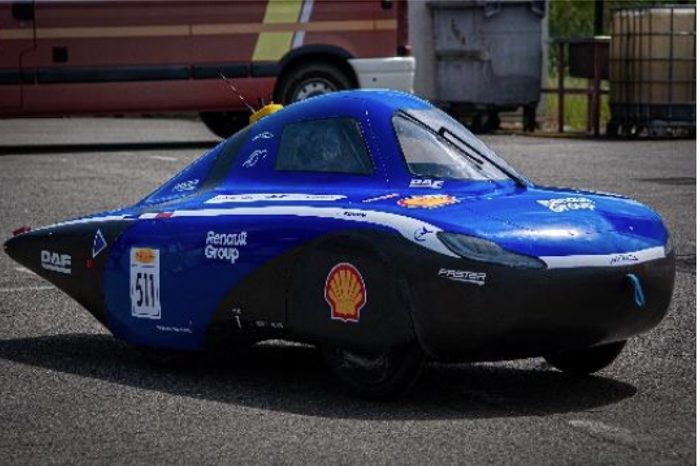
The team is currently working on two vehicles. "Gémini" is a high-efficiency hybrid vehicle, designed and built to compete in the Urban-concept category. The aim is to achieve an equivalent fuel consumption of 700 kilometers per liter of gasoline (0.14 liters per 100 km). The all-carbon-fiber monocoque is equipped with a state-of-the-art combustion engine and an optimized electric powertrain. The vehicle was presented at the last Paris Motor Show.
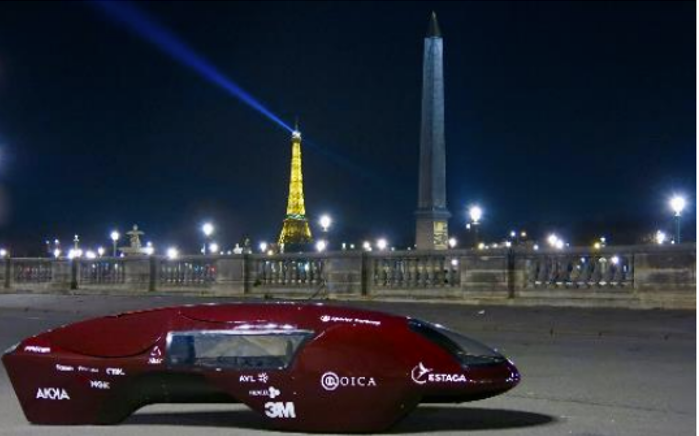
The team is also working on a new project to convert the "Calypso" thermal energy vehicle, which set a class record of 1,798 km on the equivalent of 1 liter of petrol, into an electric vehicle. This monocoque, also in carbon, weighs 30 kg. Its electrical circuits are custom-developed by the association, including the GMP (power unit), the choice of battery cells and the pilot interface.
Associations at the heart of innovative teaching at school
ESTACA's apprenticeship approach is reinforced by application projects that give students a sense of responsibility. They work in small groups on study projects based on specifications proposed by teacher-researchers, industrialists or the School's technical associations. In the engineering cycle, study projects play a major role in the training of students, who can choose between 5 types of project. Among these, the "PITA" are innovation projects proposed by student associations, such as PV3e, to carry out technical studies that can be integrated into vehicle development.
INFORMATION AND REGISTRATION - PRESS CONTACT ESTACA
Murielle Mazau: murielle.mazau@ekno.fr - 06 83 82 95 33
About ESTACA - www.estaca.fr/
ESTACA, a post-baccalaureate engineering school, is a major European player in the field of transport and mobility (aeronautics, space, automotive, rail, naval). The school trains engineers to meet the challenges of sustainable transport: respect for the environment, energy consumption control, air quality, use of ecological and intelligent materials, autonomous and connected systems, new energies, digital technology, new uses, vehicle safety and reliability. Thanks to its innovative pedagogical approach at the heart of current transport issues and its ESTACA'Lab research center, ESTACA graduates engineers with know-how recognized in the industrial and economic worlds. Passionate and professional, ESTACA engineers are highly sought after by companies: 80 to 90% of the school's engineering students are working before they graduate.










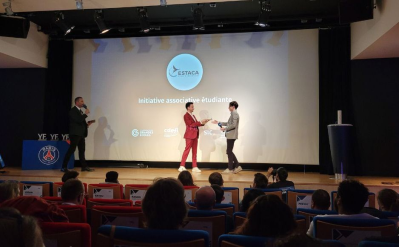
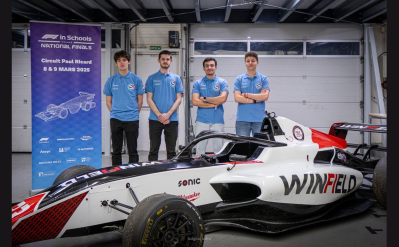




No comment
Log in to post comment. Log in.